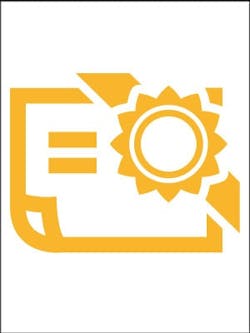Eight Tips for Marketing Training Certifications
Shops and technicians invest significant amounts of time, money and energy acquiring proper training. Training is the backbone to produce quality and accurate repairs. It can also be a key differentiator between your facility and the competition, and become solid selling points to land more jobs. But first, you need to market those certifications the right way to customers by communicating the significance of the accomplishment.
Wenceslao Severi, senior consultant for Management Success!, discusses how shops can effectively market their training certifications to boost the perceived credibility and expertise among consumers.
Acquiring business in the auto repair industry isn’t just about believing you’re the best in the trade with quality, efficient work. It’s about proving why you’re the best, and why you can be trusted to perform the service correctly.
Marketing and promoting your shop’s training certifications is one way to generate a favorable attitude toward your business among members of the community. It demonstrates the professionalism of your facility, illustrates your core values, provides confidence in the expertise of your technicians, and improves perceptions of the level of care you’re able to offer during the repair experience.
Marketing training certifications can really pay off if you do it right. When customers clearly understand your certifications—and why they’re significant—they’re able to easily differentiate the good shops from the bad. And demonstrating a commitment to quality and value could be the tipping point for customers to choose your shop. Here’s how:
Market the right certifications. Think about the viewpoint of your customers before marketing your certifications. It’s important not to promote just any certifications, but rather ones that offer value to the customer.
For example, customers likely don’t care whether you’ve obtained some type of marketing or sales training. Instead, focus on certifications that pertain to the industry, quality of repairs or quality of service. Market any technical or customer-oriented training of your staff has obtained. Customers most notably want to know that any technician working on their car has been trained and that you know how to take care of them.
Display the certifications prominently. Place your training certificates in a predominant location with great visibility inside your facility. They should be displayed in your lobby or waiting area so customers can quickly, easily and clearly see them after entering the shop.
Remember to display your training certificates away from other things hanging on your walls, such as calendars, announcement boards, posters, murals, pictures or vending machines. Those items are visually striking and distract viewers’ attention, so your training certificates could get lost and go unnoticed.
Spruce them up. Make your training certificates look nice and professional. Putting them in a frame is one way of illustrating how proud you are to have obtained it.
Offer an explanation. Most customers really don’t understand what the training certifications mean. They have no idea what it means when shops tout “ASE” or “NATEF” certifications, for example.
It’s a good idea to provide a brief, one-paragraph written explanation about the certificate alongside the display. Explain what the certification is, what it means, why it was necessary to obtain, the steps required to achieve it, the time investment to make it happen, why it’s significant, and how it elevates your expertise. That information helps customers understand the importance and value.
Offer verbal explanations. The front office staff should find ways to tout your training certifications to customers. To do that, weave certification explanations into your sales discussions when talking about your ability to deliver a complete and accurate repair. That’s an excellent strategy to prove the quality of the organization and quickly generate trust.
Include certifications in marketing materials. Communicate your training certifications in as many places as possible—newsletters, email and direct mail. Any communication that goes out should touch on certifications. That’s a solid way to develop positive public relations.
Include certifications on your website. Posting your shop’s certifications online, along with explanations, is critical. That’s the main place where consumers search for information about your business, and the tool used to make decisions whether to visit.
Include certifications in sales materials. Many shops develop informational booklets about the business to use during outside sales visits or networking events. Along with shop pictures, employee descriptions and equipment details, make sure to prominently include certification explanations.
Following these steps will prove your authority in the auto repair industry. Your shop will become a thought leader in the trade—an organization that people listen to and trust. Customers will know they’ll be able to develop a beneficial and worry-free relationship immediately after entering your facility.
